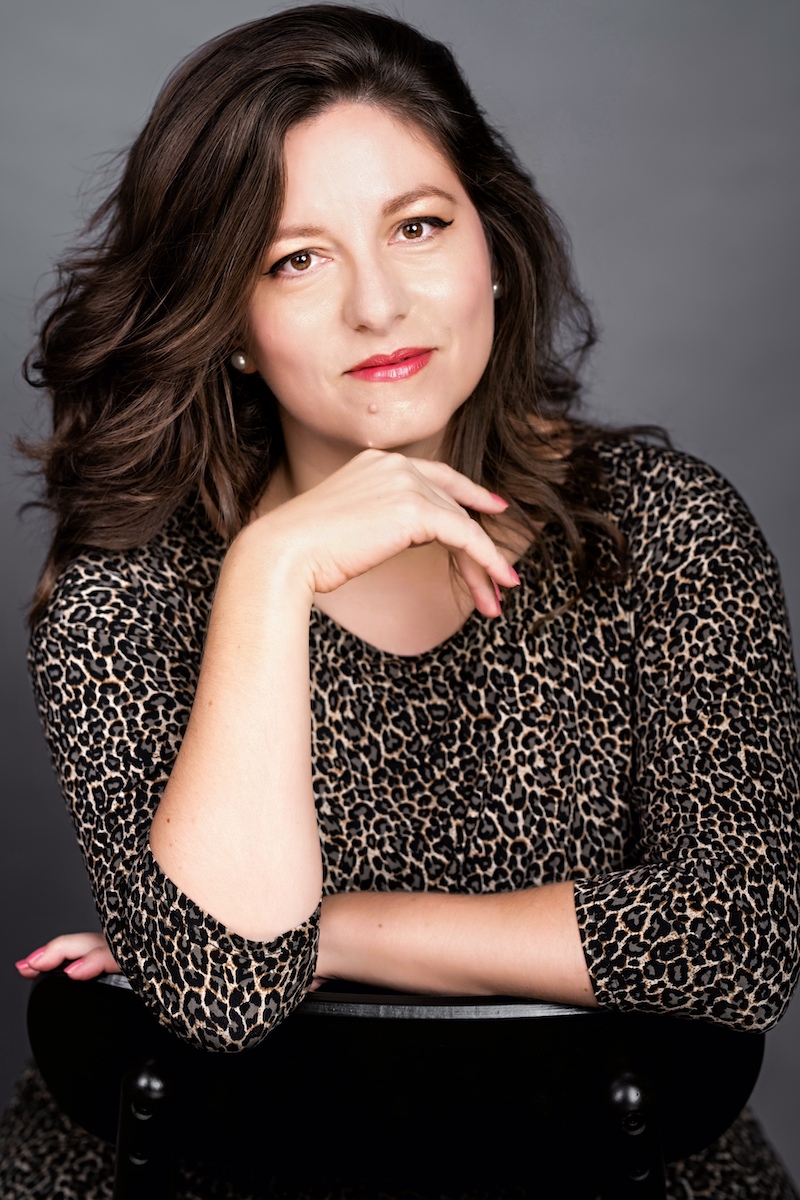This article is part of a regular series of conversations with the Review’s contributors; read past ones here and sign up for our email newsletter to get them delivered to your inbox each week.
In the December 16, 2021 issue of the magazine, Irina Dumitrescu reviews Matrix, Lauren Groff’s new historical novel about a medieval abbess, loosely based on the life of the poet Marie de France. The subject was a fitting one for Dumitrescu, a professor of medieval English literature at the University of Bonn who is also an essayist and critic of contemporary literature, as comfortable discussing Marie de France’s oeuvre as Lauren Groff’s. “I’m a generalist at heart,” she wrote to me in an e-mail this week.
Dumitrescu came to medieval literature by happenstance. When enrolling for classes as an undergraduate at the University of Toronto, she realized she couldn’t bear to select the physics class she needed for her human biology major—“my duty as a good immigrant was pre-med,” she said—and signed up for an English seminar on a whim. She was hooked: “As it happened, I hated every other one of my classes and did poorly in them. Had it not been for English I probably would have dropped out of university altogether.”
After switching majors she decided to learn Old English, attracted by the fact that it was only a year-long course of study. “I liked the idea of such a low commitment,” she wrote, “only one year to learn a language and then be done with it! That didn’t turn out quite as I expected.” Soon she was studying Latin, Old Icelandic, “then more, stranger varieties of Latin.” She was mesmerized by medieval literature, in which she found “a distant world with occasional flashes of familiarity. It’s that tension between ways of being, thinking, and believing that are fundamentally inconceivable to me, and experiences that feel shockingly intimate and fresh, that I find so riveting.”
She offered the example of the fifteenth-century woman Margery Kempe, who recorded her frequent divine visions and experience of participating in a mystical marriage with God, but also her difficulties with her mortal husband, who suffered from dementia. “In particular, she complains about how much laundry she had to wash because of his incontinence, and how this kept her from spiritual contemplation,” said Dumitrescu. “How often do we find portrayals in literature of women being exhausted from doing elder care, or of their frustration with the way it keeps them from pursuing their calling?”
This closeness and distance also came up in Dumitrescu’s 2018 scholarly book on the relationship between teacher and student depicted in early medieval writing, The Experience of Education in Anglo-Saxon Literature. “Premodern teachers did not shy away from incorporating difficult elements into their instruction,” she said. For example, boys were taught Latin dialogues in which an older monk would ask a student for a kiss, or to drink alcohol, and the boy would refuse. “The real-life pupils who practiced these conversations were learning to protect themselves in a variety of situations that might occur in the monastery,” she explained:
The texts I studied for my book showed that both teachers and students could be dangerous to one another, either through hatred or through desire. But the fact that a teaching relationship was antagonistic did not mean it had to be a failure. This is where I think medieval ideas of education part with our own: they considered dialogue, debate, even outright conflict to be essential parts of learning.
This dynamic is not far from Dumitrescu’s own complicated experience with a valued but at times possessive and predatory academic mentor, which she detailed in a recent essay for Longreads.
Dumitrescu began publishing essays and memoir “on the sly” while in her early thirties, on dance, food, immigration, and language. (As a child, her family emigrated from Romania to Israel, then Canada, and today she is fluent in English, Romanian, and German; proficient in French and Spanish; has a working knowledge of Old and Middle English, Latin, Old Icelandic, Middle High German, and Old French, and has been relearning Hebrew and studying Yiddish as pandemic projects—a number of languages that she rounds down to “ten, give or take.”)
“I was conscious of the fact that those pieces might be taken as a sign that I was not serious about my academic career. At first, I kept them off my CV and only mentioned them to my more trusted colleagues. Later, I stopped hiding them, but I still kept my so-called ‘public’ writing wholly separate from my academic work.” Ten years later, she has begun to merge the two forms. “I now use my essays for the public to think through my research questions. At the same time, I cannot imagine ever writing a monograph in a traditional scholarly style again.”
Currently, Dumitrescu is working on an academic book about the medieval roots of celebrity that she hopes to call Medieval Divas—“I wonder if any press will let me get away with it”—as well as a book for a general audience about “how medieval people struggled with the strict, impossible ideals of their time,” unlike the saintly figure at the center of Groff’s novel. “The project is letting me connect to medieval writers in a way I rarely get to as a scholar: as flawed human beings trying their best to hold on to a sense of self in a chaotic world. After the past two years of living through a pandemic, I feel closer to them than ever.”
Advertisement


